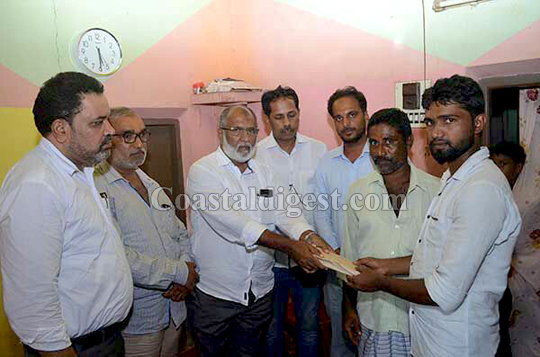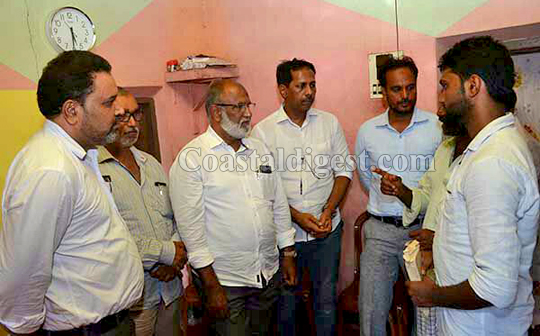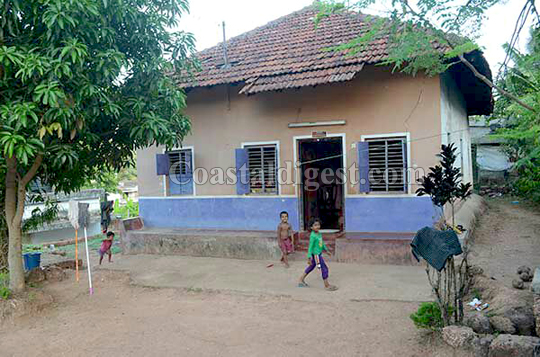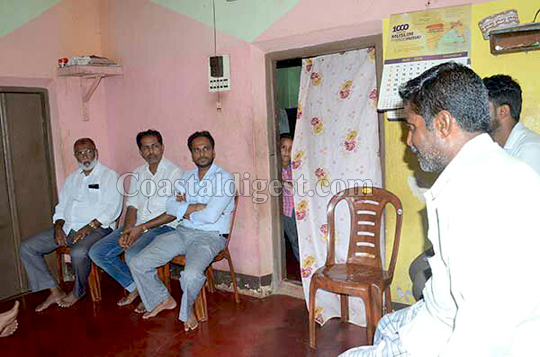Bengaluru, Apr 20: As many as 59 people were arrested on Monday for attacking police and health officials at the minority dominated Padarayanapura in the city when they went to quarantine some people, police said.
"Fifty-nine people have been arrested (in Padarayanapura) and have been taken into custody. The people attacked the officials who had gone to quarantine some poeple who were the primary and secondary contacts of three COVID-19 patients," a police officer said.
A large number of people, mostly youth from the minority community poured on to the road on Sunday and thrashed the health workers who had gone to quarantine some people who were the primary and secondary contacts of the health workers.
The officials were allegedly beaten black and blue.
Some local residents who went to the rescue of these officials were also thrashed.
According to police, one among the arrested is a woman by name Firoza who had allegedly instigated the mob to attack the health and police officials.
Subsequently, a large number of police personnel were deployed in the area to avert any untoward incident and to quarantine those who are suspected to be infected with COVID- 19.
Blowing sirens, a strong contingent of policemen carried out a flag march in the area.
The Bengaluru police commissioner Bhaskar Rao later called on Chief Minister B S Yediyurappa and briefed him about the situation in Padayarayanapura.
The violent incident drew angry reactions from various quarters.
Karnataka Home Minister Basavaraj Bommai said an incident like the one at Padayarayanapura will not be tolerated.
"I met Chief Minister and briefed him about the incident. He has told us to act strictly. I have told the same to my officials. We won't tolerate such acts by anyone. We have arrested 59 people. Five FIRs have been registered," the minister told reporters.
Bommai, who visited the area took the senior police officials to task for not being present on the spot when the incident took place.
"Where were you? What were you doing when the incident happened?" he questioned a senior police officer.
"We will demonstrate to the people what is containment zone, what is seal down and what is police action," he said.
Condemning the incident, Health Minister B Srimulu warned those who indulged in such activities.
"The inhuman act of attacking police and health workers in Padarayanapura is highly deplorable. Our government will take appropriate step against those indulging in the attack on health officials and police officials who had gone there to protect them," he tweeted.
BJP's firebrand MP Shobha Karandlaje reacted sharply.
"Seculars attack #CoronaWarriors when they were quarantining the secondary contacts of #Covid19 in Padarayanapura of BLR. While #HealthcareHeroes are working overnight to contain #CoronaPandemic, these morons are assaulting our heroes! Let's not be soft on these anti- nationals!" Karandlaje tweeted.
Meanwhile, the minority leaders called on Congress state president D K Shivakumar to persuade the people of the minority community to assist in identifying the COVID-19 patients or carriers.
Former chief minister H D Kumaraswamy too condemned the attack and demanded stringent action against the culprits.
The Congress MLA from the area B Z Zameer Ahmed Khan while condemning the incident, sought to know why the health workers and police officials went to the area late in the night and not in the morning.
"Why did the police and the health workers go in the night when I had told the BBMP Commissioner that I will take them at 10 am?" Khan told reporters.
Defending those who attacked the government officials, Khan said they were uneducated labourers who didn't know what they were doing.
Padarayanapura and Bapuji Nagar were among the first areas to be completely sealed as people were not abiding by the prohibitory orders under Section 144 of the CrPC.








Comments
Well educated CHEDDIS.
eagerly waiting for at least few words..
DKMA has done outstanding job ....
Whose family is the next lucky one to get Rs two lakhs.does any non muslim family deserve to be included in the list. Or being Kafir they are not eligible?.
Really Great work May Allah help us to join hand to such a organization (its really needed) and as well as need to help those who injured
good work by DKMA
Mashaallah\\" great begining, proud to be a part of dmka"
Real impact of KKMA-Karnataka
Well done , DKMA, Also i thank PFI ( Popular front of india) Who are actually the ones who initiated such charity and now being followed by community. When it comes to Unity and Helping Hands PFI Has always been a example for Us.
Such kind of activity in community is a good sign. A similar organisation is needed for Udupi district too.
Masha Allah. a noble gesture by DKMA. Keep it up. you won our hearts within a few days after formation.
Add new comment